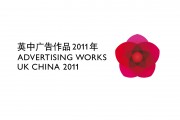If there is one person that embodies advertising and the wonders it can achieve then it would probably be Rory Sutherland. He is creative to the core, and his quintessentially British accent along with a quirky fashion sense makes him an individual hard to forget.
Outside the advertising industry he is most well known for his incredibly amusing, yet fascinating talks for TED. The popularity of his talks have made him the friendly face of an industry that has a reputation for ‘evil’.
(Watch on TED)
Having graduated from the University of Cambridge, Rory began his working life as a teacher of Classics at an English grammar school. However, he soon changed his career choice to advertising and joined Ogilvy & Mather (one of the world’s largest ad agencies with around 16,000 employees around the world) as a graduate trainee. He has worked at the agency ever since, despite being (and I quote) “fired” at one point, and he is now Vice Chairman of Ogilvy Group UK.
Last year, Rory was part of a delegation of British advertising professionals led by the Institute of Practitioners in Advertising (IPA) that visited China to “promote the world-class reputation of the UK advertising sector and encourage Chinese brands to go global.”
chinaSMACK was lucky enough to grab Rory for a short interview to find out his views and perspectives on China and what he learnt from his visit to the Mainland last year.
Hi Rory, welcome to chinaSMACK. You have become a minor celebrity of advertising through your talks at TED, but how did you become involved with the organisation?
I am a great believer in obliquity. The idea that the best way to accomplish something is not to pursue it directly, but to pursue some other ideal, with the result that success is a by-product of your actions, not a direct product. Mao, I think, said something very similar, about the fastest way from A to B very rarely being a straight line.
This is how I ended up speaking at TED.
In short a few years ago I came to the conclusion that advertising and marketing people had become very good at impressing each other, but had completely lost the knack of interesting anyone else. So, partly for my own amusement, I started collecting interesting approaches to marketing – from Ogilvy and elsewhere – which I presented in such a way as to appeal to a wider audience. As a result of this, I ended up speaking at a very obscure conference in Austria where by happy chance I was invited to speak at Nokia world. Bruno Giussani and Chris Anderson were both in the audience at Nokia World and kindly invited me to speak at TED Global in Oxford.
Rory’s second TED Talk (Watch on TED)
Apologies for this unoriginal question, but what was your career path to where you are now as the Vice Chairman of Ogilvy Group UK?
Graduate recruit at Ogilvy. World’s worst account man for a year. Planner (a bit better) for six months. Copywriter for the remaining 20 years. Whatever job titles they may ladle on top, I am still, deep-down a copywriter.
Vice Chairman is a good job for me. I am wholly ill-suited for executive management roles, since my excessive fear of the obvious, instilled in me from years working on creative tasks, has completely buggered my everyday decision-making abilities.
Last year you were part of the UK IPA delegation to China. Why did you personally want to be involved?
How can you not want to visit China? Perhaps the greatest and fastest creation of wealth in the history of the world. Whether it becomes a brand powerhouse at the same speed as it has become a manufacturing powerhouse is the question we need to answer.
What did you learn from your trip to the Middle Kingdom? What did you enjoy the most?
The scale and success of the Ogilvy operation there amazed me, even though I had been told what to expect. Loved the Shanghai Expo, obviously. I found the energy astounding, too.
Ogilvy Shanghai’s award-winning ’70-metre spit’ campaign
I do have some caveats, however: the pace and scale of growth have sometimes been bought at the cost of variety and diversity. To use an IT analogy, the hardware is all there, but sometimes the software hasn’t yet been written.
Did anything in China particularly inspire you?
The best and the worst of the architecture.
As someone who understands the importance of brands, did you purchase any Shānzhài (copycat) products?
I have always coveted the fake iPhone, as it is such a cheeky, cheesy fake. An impressive home-screen which dissolves into hideousness once any icon is pressed. Dual SIM phones are something we could do with here, by the way.
What one thing about the Chinese Advertising Industry stood out for you?
The sheer number of small agencies – numbering in the thousands.
Last month, Huawei announced its plans to enter the European mobile phone market. Do you believe that Chinese brands are a serious ‘threat’ to the established Western brands?
Huawei has had the makings of a serious brand for some years, and is very well known as a B2B brand. The rapid success of the Korean manufacturers in consumer electronics shows what can be achieved in this sector with a decade of serious attention to brand-building. Sometimes strong engineering cultures can be strongly resistant to the importance of design or intangible value – but Samsung and LG show what can be achieved if you understand both technology and psychology.
Do you think Chinese brands are growing too fast? They are going from zero to hero in months as opposed to the decades brands such as Nike have taken to win the hearts of consumers. Does this spell disaster for the brands of the Middle Kingdom?
Was Google too fast? Amazon? eBay? Starbucks? We seem to be in a different era of brand creation.
Ogilvy Group in the USA have established a ‘China Practice’, are there any plans for Ogilvy UK to create a similar unit?
We may open an India practice, too. But watch this space.
From your experience, do you have any pearls of wisdom you would like to pass on to the young and growing Chinese Ad agencies?
Behavioural economics. It has a vocabulary far more likely to appeal to a scientific culture than the woolly language of marketing.
When will be your next visit to China? Will you be going back this year with the IPA delegation?
I am giving my place in the IPA delegation to someone else. But I shall be in Shanghai later this year.
And finally, you have an admirable fondness for cravats, where did this fondness come from? Do you think (or dare I say hope) these will be back in fashion soon?
Necessity. I grew too fat for my shirts! In India they are still in fashion – they never went out. In my ideal world, men’s and women’s fashion would be Indian, not western.
Thank you Rory and xiè xiè.
Don’t forget to like us on Facebook.
.











